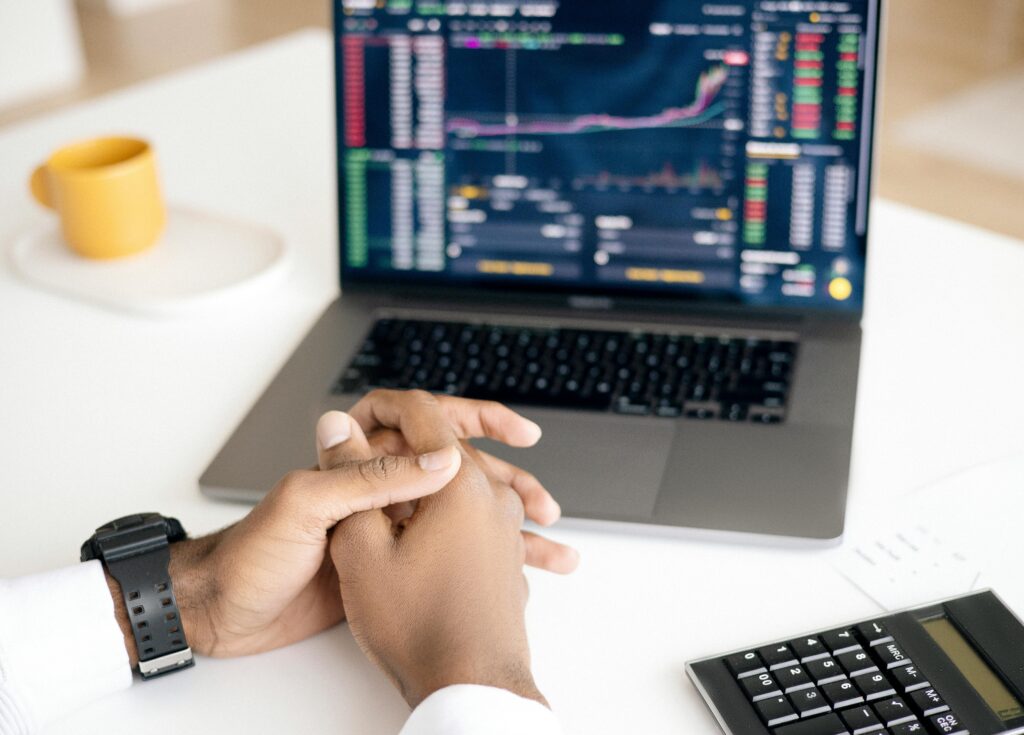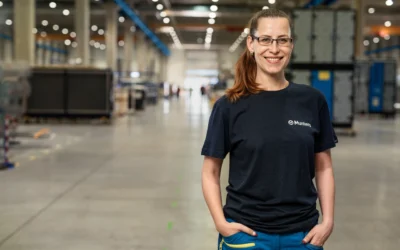Share buybacks: why do companies buy back shares?
Buying and selling shares in a company is a critical part of the stock market. A company’s stock value can help show the financial well-being and value of its business. Learning about how share buybacks can affect the stock market can help you make good investment decisions on behalf of your company. In this article, we explore what a share buyback is and explain the different reasons why a company would buy back shares.
What is a share buyback?
A share buyback is when a company buys back its own shares from the stock market. Companies use surplus cash or borrowed funds to pay for the buybacks. Usually, companies will buy back shares when surplus funds are available or when the business is financially sound. A share buyback either removes the stock from the market completely, gives the purchased sum to employees through shares or keeps the stock to be able to sell it on in the future.
What are shares?
Shares are units of ownership in a company. Shareholders own shares in order to become investors in a company’s business ventures. Shareholders own a share of the company and can benefit from profits. There are two types of shares:
Stocks
Shares, or common stock, are marketable investments in a company that are available on the stock market. Shareholders can vote on corporate matters, while ordinary shareholders receive dividends from a company’s profits.
Preference shares
Preference shares are shares that provide additional benefits to shareholders in terms of a company’s profits. Preference shareholders receive profits before ordinary shareholders. In the event of company liquidation, the company would pay before ordinary shareholders before ordinary shareholders. There are three different types of preference shares: – Cumulative preference shares: Cumulative preference shareholders can receive late dividends before the company pays them out to its ordinary shareholders. For example, if the company did not pay dividends for the previous year due to financial problems, preference shareholders may receive dividends for the previous year in addition to the current one. – Non-cumulative preference shares: Non-cumulative shareholders cannot claim previously missed dividends. They can only claim dividends in years where the company makes a profit. – Convertible Preferred Shares: Convertible shareholders can convert their preferred shares into common shares. Share conversion requires company approval.
Why would a company buy back shares?
There are many reasons why a company may buy back its own shares, including:
Increasing the value of shares
A company can buy back its own shares if it believes it has undervalued shares. By buying back a share, a company increases the amount of profits it receives per share, or earnings per share (EPS). For example, consider Joe’s Fishing Company, which has an estimated value of $100 for 50 shares. That means each share has an EPS of $2 per share. But if Joe’s Fishing Company buys back 25 of those shares, the EPS increases. Now the 25 available shares have an estimated value of $100, bringing the earnings per share to $4.
Increase profits from attractive stocks
Since buying back shares can increase its profits, a company can buy back its own shares to help increase profits during high buying periods. For example, if Joe’s Fishing Company believes its stock is attractive and can generate profits, the company may buy back several shares to increase projected profits. Buying back a stock can increase how valuable the stock seems to investors, which can make already attractive stocks seem even more appealing.
Increase equity for employees
When a company buys back its own shares, it can give the value of shares, or equity, to its employees. A company can offer equity to employees as a non-cash compensation. Equity gives employees extra ownership of a company, allowing for potential investment opportunities in the future. Companies can also offer shares to improve benefits to attract new employees or secure existing ones.
Increase invested capital
For a company to expand, it can offer shares to shareholders. To retain shareholders, companies pay stakeholders for the cost of shares. However, if a company has little opportunity to expand, it may not be economically efficient to retain many shares and shareholders. Companies can buy their own shares to invest capital elsewhere, rather than continuing to pay for unnecessary shareholders.
Disadvantages of share buybacks
Some disadvantages of buying back shares can be:
Timing challenges
Because companies can buy back shares to gain profits in the future stock market, buyback efforts can run into timing challenges. For example, a company may buy back shares to gain more profit while its shares are sold at high prices. If share prices fall after a buyback, the company may not gain profits as expected.
Investor effects
A drop in the share price after a buyback can show equity investors that the company is financially unhealthy. Potential investors may believe that a company has no other profitable growth opportunities if the company continuously buys back its own shares. In addition, if share prices were to fall after a buyback, a company may not have excess finances to meet financial needs. Related: What is a shareholder?
Benefits of share buybacks
There are some advantages to buying back shares, for example:
Increases shareholder value
When a company buys back its stock, current shareholders get more valuable shares. Share buybacks reduce the number of shares, which can increase the value of each share. Allowing shareholders to hold increasingly valuable shares can not only help keep shareholders happy, but can generate even more demand for a company’s shares.
Shows the financial health of a company
Because companies buy back shares with surplus funds or with money from loans, buybacks can help investors show that a company is financially sound. In addition, because buybacks often increase the value of a company’s shares, higher share value can help further demonstrate that a company is doing financially well. Because companies usually buy back shares when they are undervalued, investors may see buybacks as opportunities to buy valuable shares.
About the Vikingen
With Vikingen’s signals, you have a good chance of finding the winners and selling in time. There are many securities. With Vikingen’s autopilots or tables, you can sort out the most interesting ETFs, stocks, options, warrants, funds, and so on. Vikingen is one of Sweden’s oldest equity research programs.
Click here to see what Vikingen offers: Detailed comparison – Stock market program for those who want to get even richer (vikingen.se)













